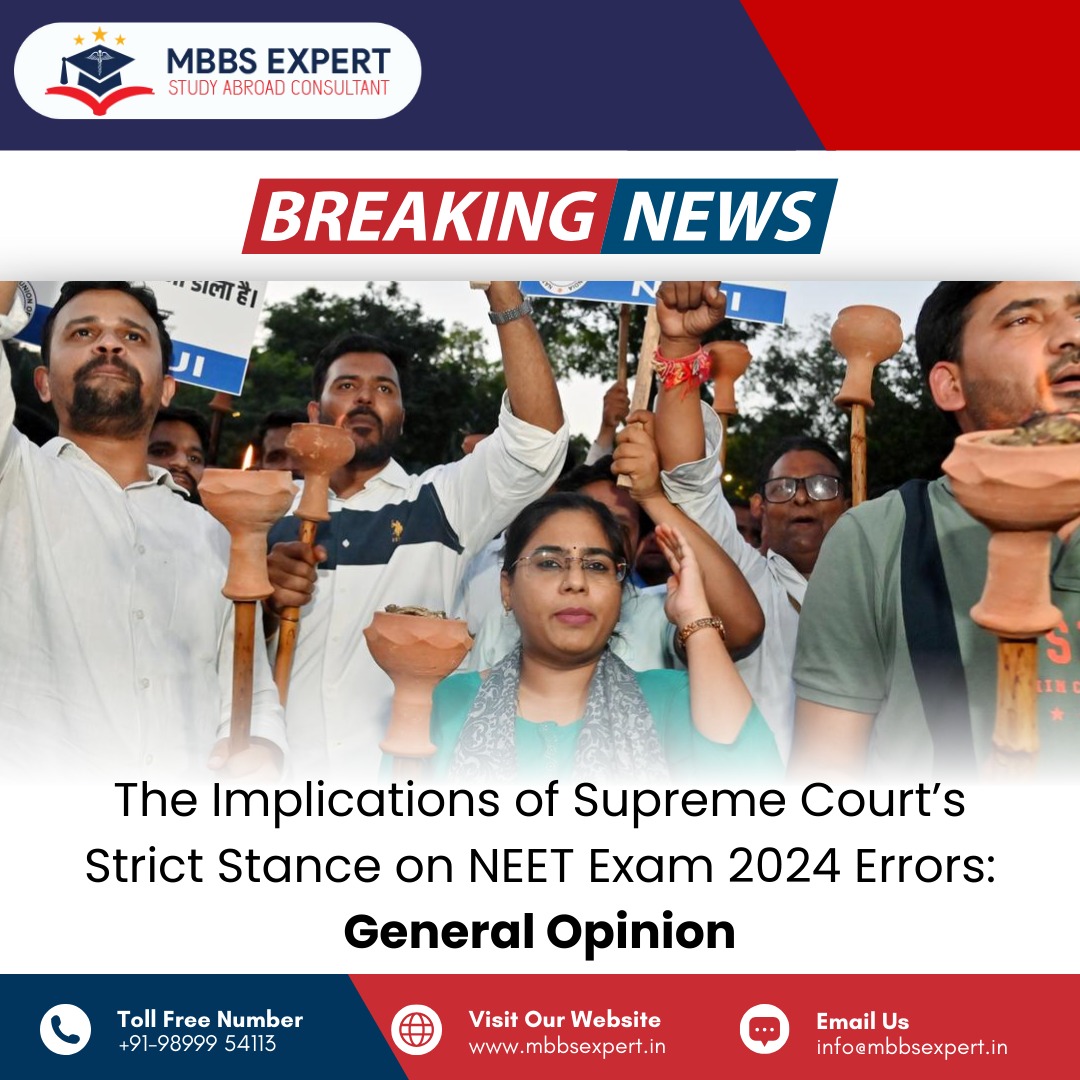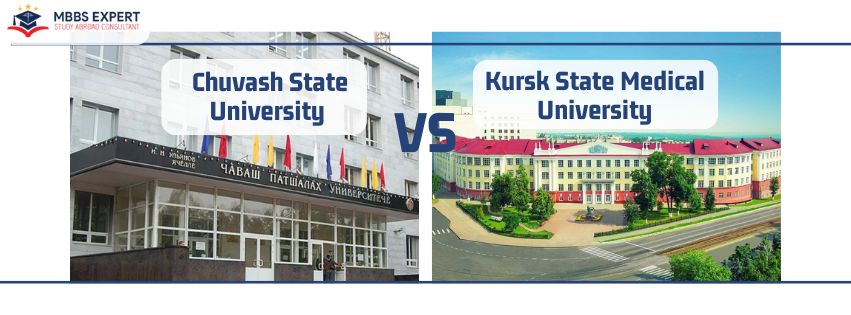Study MBBS at Ingush State University, Russia – Your Gateway to an Affordable Medical Education…

The Implications of Supreme Court’s Strict Stance on NEET Exam 2024 Errors: General Opinion
![]()
The Implications of Supreme Court’s Strict Stance on NEET Exam 2024 Errors: General Opinion
In a recent analysis of the Supreme Court’s observations regarding the National Eligibility cum Entrance Test (NEET), a significant statement emerged: even a minuscule error rate of .0001% will not be tolerated. This stringent perspective has sparked considerable speculation about the possibility of a re-conduct of the NEET exam.
The Supreme Court’s decision to scrutinize the National Testing Agency (NTA) on several critical issues underscores the gravity of the situation. Here’s a closer look at the key points that the Supreme Court will consider:
The Centre Change Window Controversy:
The Supreme Court will investigate why the centre change window was opened just two days before the exam. This sudden decision raised eyebrows, prompting questions about the key influencers behind it. Understanding the rationale and identifying the decision-makers is crucial to determine if there was any undue influence or if the decision was made in haste without considering its implications.
Dubious Centre Changes:
A significant number of students reportedly changed their exam centres to locations far from their home cities. This unusual pattern has been deemed suspicious and warrants a detailed examination. The Supreme Court will likely look into how many students made such changes and whether these changes were legitimate or orchestrated as part of a larger malpractice scheme.
Grace Marking Logic:
Another critical issue is the basis on which the NTA adopted its grace marking logic. The methodology and criteria for awarding grace marks need to be transparent and justifiable. The Supreme Court will scrutinize whether the grace marks were distributed fairly and consistently across all affected candidates or if there were any biases.
Selective Grace Marks:
There is a concerning allegation that grace marks were given only to students who filed legal petitions. This selective awarding of grace marks raises questions about equity and access to justice. The Supreme Court will consider how many students, unable to afford legal action, might have been unfairly disadvantaged. This issue highlights the broader problem of accessibility and fairness in the education system.
Exam Paper Leaks:
Perhaps the most serious allegation is the paper leak that reportedly occurred at multiple centres. The Supreme Court will investigate the extent of these leaks, how they happened, and the number of centres involved. This inquiry is crucial to understanding the systemic vulnerabilities that allowed such a breach and to prevent future occurrences.
The NTA’s response to these allegations will be critical. If they attempt to downplay or selectively accept their mistakes, they risk a court-monitored inquiry. The Supreme Court’s firm stance suggests that any attempt at a cover-up will be met with severe repercussions.
Given the current sensitive and volatile public sentiment, it is unlikely that the NTA will be able to provide a foolproof coverup. The Supreme Court’s tough attitude indicates a commitment to transparency and accountability, making it challenging for the NTA to evade comprehensive scrutiny.
Repercussions and Possible Outcomes:
With the Supreme Court’s rigorous oversight, the NTA is under immense pressure to address these issues transparently. The possibility of a re-conduct of the NEET exam is growing, especially if the investigations reveal substantial irregularities.
The Education Ministry, keen to avoid further embarrassment, may preemptively announce a re-exam to maintain its credibility and public trust. Such a decision would not only align with the Supreme Court’s commitment to fairness but also serve to reassure the thousands of students and their families who have been affected by these controversies.
Conclusion:
The Supreme Court’s unwavering stance on NEET exam errors and its decision to scrutinize the NTA’s conduct reflect a broader commitment to ensuring fairness and integrity in one of India’s most crucial entrance exams. The outcome of this scrutiny could lead to significant changes in how such exams are conducted in the future, with stricter safeguards against malpractice and more transparent processes for addressing grievances.
As the situation unfolds, it is imperative for all stakeholders, including students, educators, and policymakers, to stay informed and prepared for possible changes. The potential re-conduct of the NEET exam underscores the need for a robust and fair examination system that upholds the highest standards of accuracy and integrity.
In the meantime, students should continue their preparations with the understanding that the Supreme Court’s intervention is aimed at ensuring a level playing field for all. The eventual decisions made by the Supreme Court and the Education Ministry will likely set important precedents for future entrance exams, reinforcing the importance of fairness and transparency in the education system.





